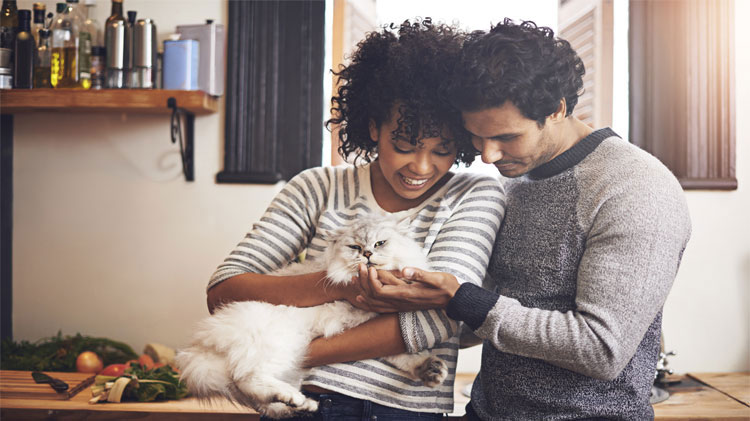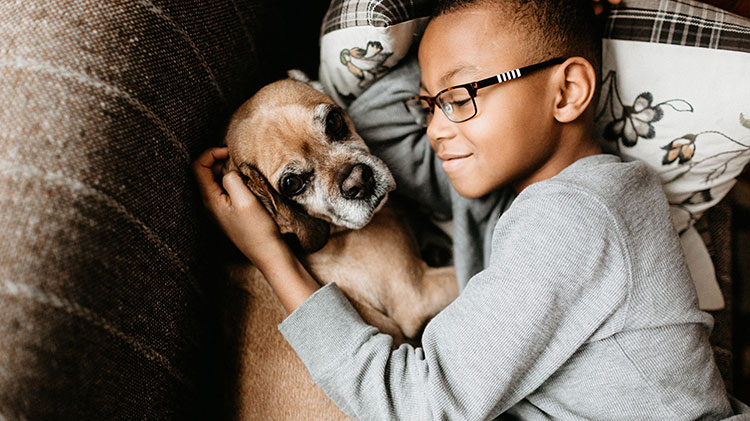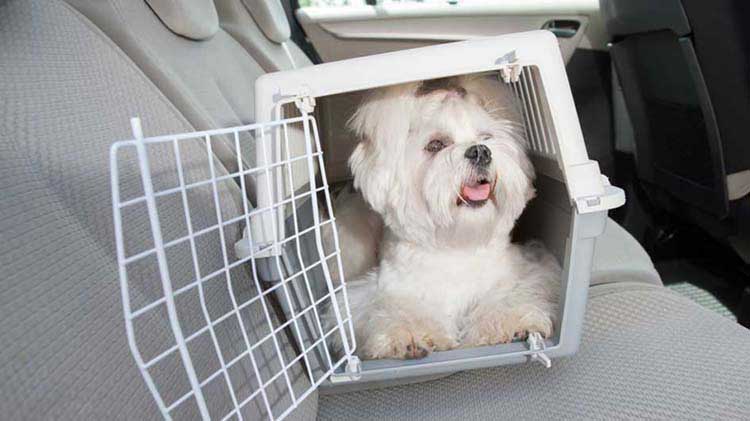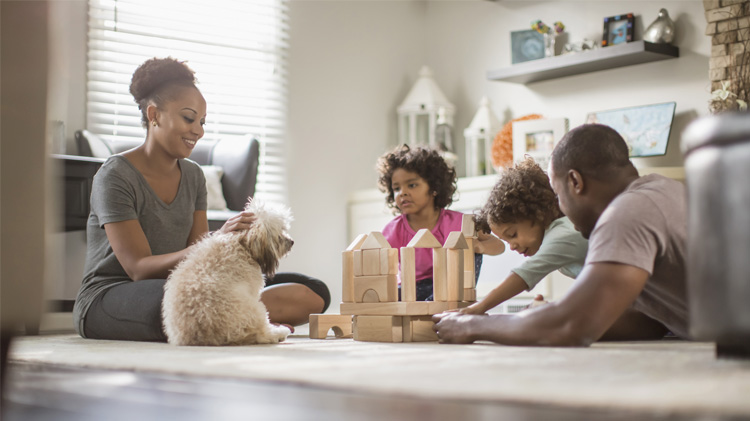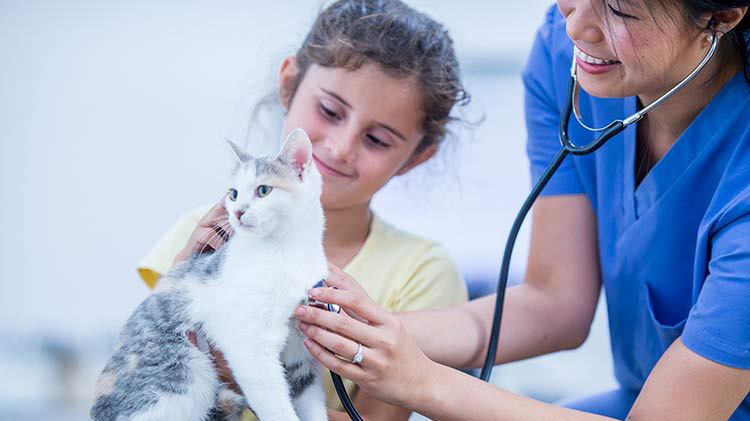Bringing home a new pet
From everything to pet-proofing, training, socialization and stocking up on supplies, you'll want to make sure you're ready to welcome your new pet home. Whether your new pet is a puppy, kitten or an adult dog or cat, they may need different items to transition to their new space. Read on to learn more about what to consider when bringing home a new pet.
What to expect when bringing home a new pet
Whether you have a large family, children or pets already, introducing a new pet can be a fun, exciting and rewarding time for the family. In fact, it may be a new experience for the entire family. Here are some tips to consider for any new addition.
Research your pet options
All pets deserve a good home, so whether you choose to adopt through an animal welfare organization, rescue or a reputable breeder, there are a variety of ways to get your new dog or cat. Consider which option works best for your family and plan accordingly. It may be helpful to budget for your new pet when planning your monthly expenses. For example, pet care items like, food, toys, bed, pet grooming services and medical insurance can start to add up. If you start incorporating your pet's needs into your budget, it can help you plan for your future furry family member.
Prep your home
Chances are your dog or cat may want to explore and play in their new space! Naturally, you want your pet to feel comfortable and happy in their new home. This means taking the time to plan for your pet's arrival. Consider pet-proofing your home so it's a safe space for all family members. For example, before your pet arrives, remove cords, cover electrical outlets, pick items up off the floor and properly store away any food options. Also, common household items like cleaners are best to be stored away out of your furry friend's reach.
Puppy and kitten proof
Although you want your home to be pet-proof, you also may need it to be kitten or puppy-friendly. Little puppies and kittens are curious and have a way of getting into items when you least expect it. For example, items that are small may be easier for your best friend to ingest. Be especially mindful of items like gum, mints, medication, socks or rocks as they are hazards for your furry friend.
First night home
Your pet's first night home is an exciting time! Naturally, you may want to immediately play or cuddle your new best friend. Since this is a new furry family member, you may not know how they may respond to being in a new environment. Consider giving them a little space as they learn to navigate their new home.
Also, it may be helpful to already have all your pet supplies. For example, some items that may be helpful for your pet's first night include a pet bed, pet crate, pet food, pet bowls, doggy bag, litter box, identification tag, collar, leash and age-appropriate toys. In fact, the crate can be helpful for a variety of reasons. It gives your new furry friend a safe space to play, nap and become acclimated to their new home.
Establish a routine
Now that you have a new pet, you may have to adjust your schedule. You may need to take into account work schedules, walks, playtime, meal time and veterinary appointments and plan accordingly. It can help your pet adjust to their new home if they're on a schedule. Also, consider breaking up daily tasks among family members. This can help everyone feel like they're taking care of their new furry friend. After all, your pet may look forward to toss in the yard or their afternoon dog walk just as much as you do!
Training
Interaction, training and enrichment are an important part of your pet's day. Whether you have a puppy, kitten or an adult pet, they can benefit from training. Some dog or cats may need basic training, while others may need crate training, leash training or potty training. Also, interactive play and enrichment is a great way to help train and stimulate your pet while they do everyday tasks, like on their walk, eating their food or playing in the yard. Further, pet enrichment helps provide mental, physical and emotional stimulation which can be helpful if you work from home or when you leave your home for the day. Consider providing a wide variety of age-appropriate toys to help keep your pets busy and happy!
Socialization
If you already have pets and are bringing home another furry friend, you may want to give your pets some time to become accustomed to one another. Consider introducing pets initially on a leash in a neutral territory, like on a walk. This can help give them the chance to safely smell one another. Also, try keeping your pets in separate areas and give them small breaks to interact between the doorways. This gives them the chance to safely interact.
As they become familiar with one another, you can introduce each other slowly in a safe space. Most importantly, make sure all pets are supervised when interacting with one another. Every pet may react differently, so make sure to give all family members proper time to adjust and become used to the new family member.
Schedule a visit with the veterinarian
Now that your new pet is home, it's time to take them in to get checked by the veterinarian. Chances are your veterinarian will discuss your pet's wellness, vaccination schedule and answer any questions you may have on your new best friend. Consider scheduling a routine wellness visit to help keep your new furry family member happy and healthy!
Plan for the unexpected
Accidents can happen. Naturally, the last thing you want to worry about is your pet's medical care. Consider your options for pet medical insurance and learn more about how Trupanion can help be there for your pet's lifetime.
Bringing home a new pet is a chance for a new best friend
Pets are special members of your family. Whether you have a puppy, kitten or adult pet, you have a best friend that's ready to explore, travel and share new experiences with the entire family!
Learn how a pet insurance policy can be there throughout your pet's lifetime.
Terms and conditions do apply. We love informed decisions. See the Trupanion policy for full coverage details.
